Meetings Other Relevant Events

The Status of the Fourth Global Coral Bleaching Event and the role of the global coral reef community
Following the recent announcement by NOAA and ICRI on April 15th regarding the 4th Global Coral Bleaching Event – the second in a decade – this webinar aims to provide an in-depth analysis of the current state of coral bleaching on local and global scales. This global event requires global action and ICRI and its members continue to advance coral interventions and restoration in the face of climate change.
During this 2 hour webinar hear about the current status of coral bleaching from coral reef regions and countries (USA, Australia, the Red Sea, the Western Indian Ocean, the Caribbean, Brazil, and France) and the role of the global coral reef community to secure a future for coral reefs.
Coral bleaching is a phenomenon in which corals lose their vibrant colours due to stress, such as elevated sea temperatures, pollution, or changes in water chemistry, leading to the expulsion of their symbiotic algae, known as zooxanthellae, from their tissues. This leaves the coral tissue transparent, revealing the white skeleton underneath. While bleached corals are not necessarily dead, prolonged bleaching can lead to coral mortality if the stress persists.
Coral bleaching poses a significant threat to coral reef ecosystems worldwide, as it can result in extensive coral mortality, declines in biodiversity, and habitat degradation.
English with French and Spanish Interpretation
To share key messages and resources about coral bleaching, its impacts, causes and solutions currently being implemented and developed, ICRI has developed the “Coral Bleaching Hub” to support responses, policy and planning, and encourage global cooperation.
Should you have any questions or need more information, do not hesitate to contact the ICRI Secretariat
Tuesday 14th May 2024
Agenda
Opening and Housekeeping
Margaux Monfared, ICRI Secretariat
Welcoming Remarks
Jennifer Koss, NOAA Coral Reef Conservation Program and ICRI co-chair
The Fourth Global Bleaching Event (.pdf)
Derek Manzello, NOAA Coral Reef Conservation Program
The Current Status of Coral Bleaching from Coral Reef Regions (.pdf)
Australia and the Great Barrier Reef (.pdf)
David Wachenfeld, AIMS
The Red Sea (.pdf)
Walter Rich, KAUST
The Western Indian Ocean (.pdf)
Karin Moejes, CORDIO
The Caribbean (.pdf)
Judith Lang, AGRRA
Brazil (.pdf)
Beatrice Ferreira, Departamento de Oceano e Gestão Costeira, Secretaria de Mudança do Clima
France (.pdf)
Antoine Pebayle, IFRECOR
Question and Answer
Moderator: Margaux Monfared, ICRI Secretariat
Discussion on next steps and the role of the global coral reef community
Moderator: Jennifer Koss, NOAA Coral Reef Conservation Program and ICRI co-chair
Concluding remarks
ICRI Secretariat

Jennifer Koss
NOAA Coral Reef Conservation Program and ICRI Co-Chair
Jennifer is the director of NOAA’s Coral Reef Conservation Program in 2015, creating an ambitious vision and strategic plan for coral conservation and management efforts at NOAA. She also holds key national and international positions as the Steering Committee Co-Chair of the U.S. Coral Reef Task Force, Co-Chair of the International Coral Reef Initiative, chair of the Global Coral reef Monitoring Network Steering Committee, and Vice-Chair of the Coral Research and Development Accelerator Program (CORDAP), Jennifer is a graduate of NOAA’s Leadership Competencies Development Program and has legislative experience serving two years in Senator Daniel K. Inouye’s (D-HI) Office.
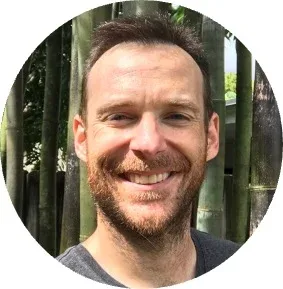
Derek Manzello
NOAA Coral Reef Conservation Program
Dr. Derek Manzello is a coral reef ecologist, with a Ph.D. in Marine Biology and Fisheries from the Rosenstiel School of the University of Miami, and is the Coordinator of NOAA’s Coral Reef Watch program, an effort focused on the monitoring of coral reef ecosystems through satellite and in situ observations. Coral Reef Watch uses NOAA satellite data to monitor environmental conditions that lead to coral bleaching and other marine ecological disturbances. Dr. Manzello has published on multiple topics in coral reef ecology, and he regularly conducts research that spans the disciplines of biology, chemistry, and geology. His primary research interest is understanding the impact of climate change and ocean acidification to coral reef ecosystems.

David Wachenfeld
Australian Institute of Marine Science (AIMS)
Dr David Wachenfeld has worked on the Great Barrier Reef for over 30 years in a career spanning tourism, marine park management and science. David is currently the Research Program Director for the ‘Reef Ecology and Monitoring Program’ at the Australian Institute of Marine Science. He leads a team of 40 scientists who study the coral reefs of the Great Barrier Reef, including long term ecological health, impacts of climate change including changes to ecological function, new technologies to monitor reef ecosystem health, tracking movements of large reef animals, and modelling and decision support for reef restoration. His team also work with communities in coral reef countries around the world to improve global monitoring of reef health.
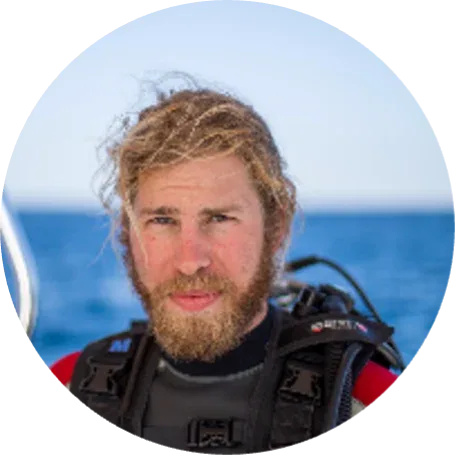
Walter Rich
King Abdullah University of Science and Technology (KAUST)
Dr. Walter “Wally” Rich is a postdoctoral fellow at the King Abdullah University of Science and Technology (KAUST) in Saudi Arabia. He obtained his Ph.D. in marine science from KAUST in 2022 where he studied the ecology and physiology of coral populations inhabiting high-temperature reef flats in the central Red Sea. He has over 5 years of experience in the Red Sea and has had the opportunity to explore coral reefs along most of the Saudi Arabian coastline. Currently, he is involved with several projects examining how oceanographic processes influence coral biology and overall reef function, including managing a large network of in situ sensors to monitor environmental conditions on reefs.
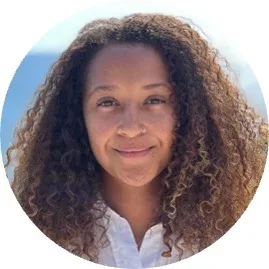
Karin Moejes
CORDIO East Africa
Dr Karin Moejes, has a PhD in Marine Engineering, and has been leading the Coral Reef Programme at CORDIO East Africa since early 2023. She is actively involved in the Red List of Ecosystems for coral reefs and serves as the Western Indian Ocean regional representative for the GCRMN. Karin has always been one to stay curious and up for the challenge of learning something new.
Karin has a strong desire to continue to work in fields that can creatively draw on the brilliant innovations and ideas of a multitude of knowledge sources; from science and technology, to community and indigenous knowledge; in order for us to tackle some of the worlds biggest environmental and social issues.
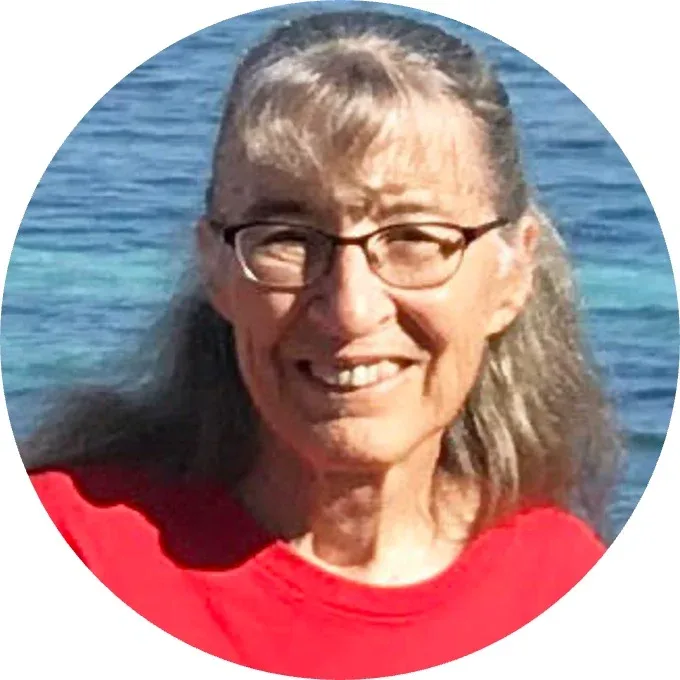
Judith Lang
AGRRA
Dr. Judith Lang can remember a time when stony corals so dominated Caribbean reefs that they competed with each other for living space. She helped develop the original AGRRA protocols in the late 1990s and then the original training materials. She still volunteers as AGRRA’s mission has expanded since 2018 to include responding to stony coral tissue loss plus Diadema disease, bleaching and, most recently, coral rescue.

Beatrice Padovani Ferreira
Departamento de Oceano e Gestão Costeira, Secretaria de Mudança do Clima
Beatrice Padovani Ferreira, is from the department of ocean and coastal management Secretariat of climate change in Brazil. Beatrice graduated in Biological Sciences from Universidade Santa Úrsula, with a master’s degree in Biological Oceanography from the Federal University of Rio Grande and a PhD in Marine Biology from James Cook University of North Queensland, Australia. She is currently a full professor at the Department of Oceanography at the Federal University of Pernambuco and a member of the Postgraduate Program in Oceanography at UFPE. She works in the area of Oceanography, with an emphasis on the following topics: ecology and monitoring of coral reefs, protected areas, ecology and population dynamics of fish, ecosystem connectivity and fisheries management. She has been a member of the IUCN expert groups for preparing the red list since 2007, having also served on the expert group in the global assessment of the Oceans conducted by the UN.
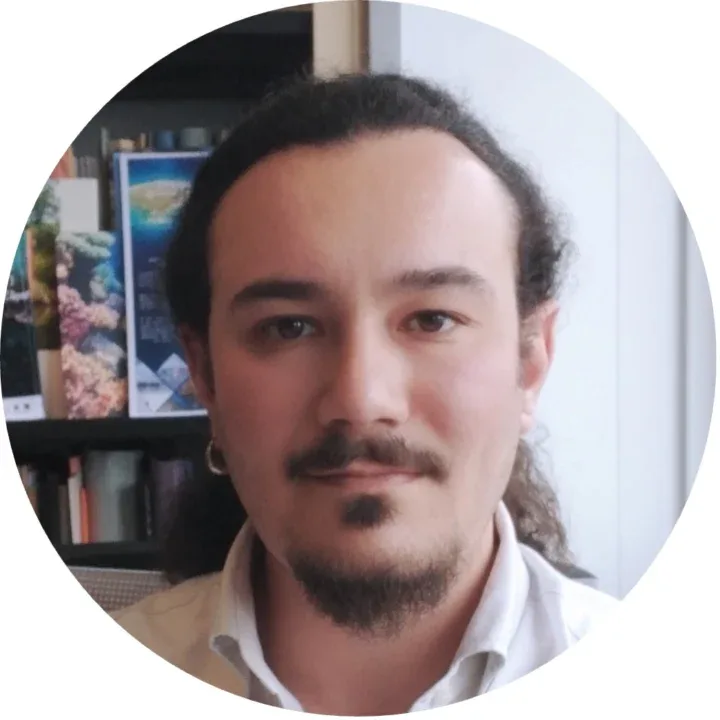
Antoine Pebayle
French Coral Reef Initiative (IFRECOR)
Antoine has been a marine biology and coral reefs policy officer at the Ministry of Ecological Transition of France since 2019. As such, he is in charge of coordinating the French Coral Reefs Initiative (Ifrecor) alongside the Ministry of the Overseas. He is the national focal point to international initiatives such as the International Coral Reefs Initiative (ICRI) or the Coral Research & Development Accelerator Platform (CORDAP). Antoine has a background in environment sciences and policies.

Margaux Monfared
International Coral Reef Initiative (ICRI) Secretariat
Margaux has experience in managing and organising marine conservation projects in diverse reef environments around the world, including Honduras, Cambodia, and the Maldives. Her experience focused on increasing coral reef resilience to climate change. Margaux’s most recent research focused on the reproductive patterns of Acropora in the Maldives, as well as coupling asexual propagation methodologies with the use of coral larvae for restoration. Margaux joined the International Coral Reef Initiative (ICRI) Secretariat in May 2023 and supports ICRI’s members in the implementation of the Plan of Action 2021 – 2024: Turning the Tide for Coral Reefs.